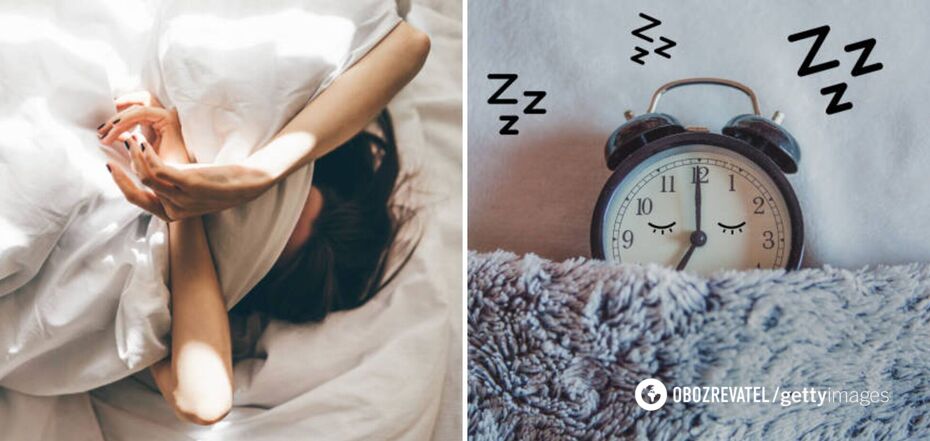Life
How to fight insomnia: useful tips for improving sleep
Surely everyone knows that feeling of irritability, when after a hard day you go to bed with the only thought: "Finally now I'll rest. But this wish becomes unrealizable, because hour after hour, turning over from side to side, you still cannot fall asleep. Thoughts increase, anger levels rise, and all the plans for tomorrow no longer look so reliable. That's when we wonder how we can fall asleep quickly, and if there are any smart tricks to speed up this process.
Exclusively for OBOZREVATEL, the doctor and health expert Ulyana Werner told about how to improve the quality of sleep and speed up the process of falling asleep.
Insomnia is a common problem that affects the quality of life and overall health of many people. Healthy and normalized sleep is important for memory, thinking, mood, and overall well-being.
1. A regular daily routine.
One of the keys to improving sleep is establishing a regular routine. Research conducted by Stanford University has shown that people who keep the same bedtime and wake up at the same time each day have better quality of sleep compared to those who keep erratic routines. This has to do with our internal clock, known as the circadian rhythm.
2. Exercise
Physical activity is another factor that affects sleep quality. Studies have shown that regular exercise improves sleep duration. Physical activity promotes the production of endorphins, which calm the body and induce a sense of relaxation. However, it is important to exercise no later than 2-3 hours before bedtime, as more physical activity can increase your activation level and make it harder to fall asleep. You can choose to exercise at home, go for a walk or go to the gym, or any activity you like.
3. Optimal sleep environment
Creating a comfortable environment also affects sleep quality. Research conducted by Oxford University has shown that the temperature in the room where we sleep is important. The optimal temperature for sleeping is between 18 and 22 degrees. It is also important to create a quiet and dark environment that promotes the production of melatonin, the sleep hormone. An hour of reading a tablet before bed compared to reading a paper book causes a 3-hour delay in melatonin. As a result, we don't feel sufficiently rested when we wake up. If reading is your mandatory bedtime ritual, opt for the paper version.
4. Eating
The food and drinks we consume during the day affect not only the quality of our sleep, but also our nighttime behavior. Deficiencies in daily vitamins and micronutrients can provoke problems with falling asleep and waking up. Try to eat dinner about 3 hours before bedtime to allow the body to focus on preparing for rest, since our digestive system slows down when we sleep. Studies have shown that the fewer hours you rest at night, the more likely you are to overeat during the day. Sleep deprivation also affects the tendency to choose high-calorie foods. Normal production of leptin and ghrelin, hormones that help control appetite and hunger, stops even after short periods of insufficient sleep, which in turn affects overall metabolism and digestion.
5. Calming Rituals
Relaxing techniques such as deep breathing, yoga, meditation, or walking can help calm the mind and body before bedtime. Research confirms that regular meditation can improve sleep quality. Try to incorporate these rituals into your daily practice.
If insomnia becomes a chronic problem and impairs your daily functioning, don't hesitate to contact a doctor or somnologist (sleep specialist) for professional help and advice. Although these tips are based on scientific research, it's important to understand that each person is unique and you may need to experiment a bit with different strategies.
Previously OBOZREVATEL told you how to fall asleep quickly in the heat. You will help bedding made of light natural fabrics and the Egyptian method. To learn all the details, read our material .
Only verified information in our Telegram-channel Obozrevatel and in Viber. Do not be fooled by fakes!





























